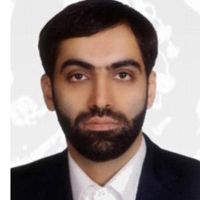Comparing Managers' Mental Models in Human Resource Risk Management to Improve Organizational Performance via Zaltman Metaphor Elicitation Technique
Research on perception, reasoning and decision-making processes has recently focused on managers’ cognitive and mental structures. The present qualitative study, hence, set out to examine managers' mental models in the process of human resource risk management and the role they play in improving organizational performance. The research data were collected through in-depth and semi-structured interviews with a sample of 21 managers at knowledge-based companies that were run based on Zaltman Metaphorical Extraction Technique (ZMET) and were subsequently analyzed through Phenomenology approach. The results indicated some similarity in structural features of participating managers’risk-taking and risk-avoiding mental models which can be attributed to the common problems they need to tackle at work. However, significant differences were also observed in terms of inter-relationships in their mental model structures; unlike the risk-avoiding managers who would evade risks, risk-taking managers were found to more frequently employ risk reduction and retention strategies. Moreover, the risk of losing key employees was identified as the most important human resource risk in those knowledge-based companies.
-
Dynamic Capabilities and Firm Growth: A Framework-Based Systematic Literature Review
Mohammad Hossein Beirami *, Varnamkhasti, Mehdi Ebrahimi, Mahdi Haghighi Kaffash
Quarterly Journal of Business Management, Summer 2025 -
Locating Urban Service Centers Using a Combined Maximum Coverage, Multi-Objective Programming, and Queueing Theory Approach
Maryam Monhaseri, Maghsoud Amiri *, Mohammad Taghi Taghavi Fard, Mostafa Zandie
Journal of Development of Logistics and Human Resoure Management, Spring 2025 -
A Cross-level Model for Employees Psychological Empowerment in Water and Sewage Industry
Mehdi Yazdanshenas *, , Shahram Khalilnezhad, Shahram Azarirad
Management Studies in Development & Evolution, Spring 2025 -
A framework for the collaboration of heterogeneous organizations in the service ecosystem (Mobility as a Service)
Mehrzad Rezaei Nayeri *, Soroush Ghazinoori, Iman Raeesi Vanani, Mohammadtaghi Taghavifard, Mohammadsaleh Torkestani
Journal of Governance Knowledge, -
The model of cooperation based on trust in international trade؛An analysis of the role of cultural differences between Iran and China
*, Maghsoud Amiri, Mohamadsaleh Torkestani, Farideh Mosalaizadeh
Journal of International Business Management, -
The Functions of Social Media in the Media Diplomacy of the Islamic Republic of Iran
, Mansoureh Akhavan *
Journal of International Media Research Letters, Spring-Summer 2024 -
Introduce a Conceptual Model for Explaining the Obstacles to the Implementation of Sustainable Human Resource Management, Case Study: National Petrochemical Company
Esmaell Omranzadeh, *
Quarterly Journal of Management of Governmental Organizations, -
A Critique on the Book “The Basics of Neuroleadership: Organizational Leadership by Neuroscience”
, Karim Esgandari *, Shadi Orafaye Jamshidi
Critical Studies in Texts & Programs of Juman Sciences,





